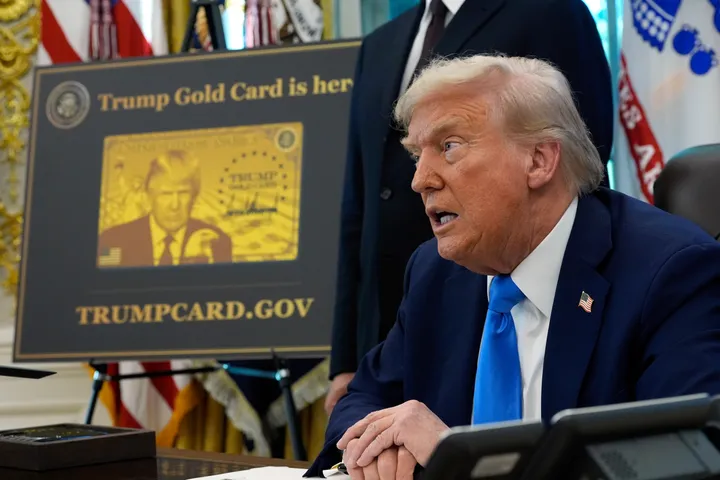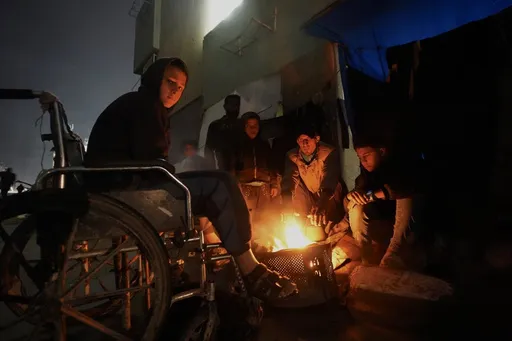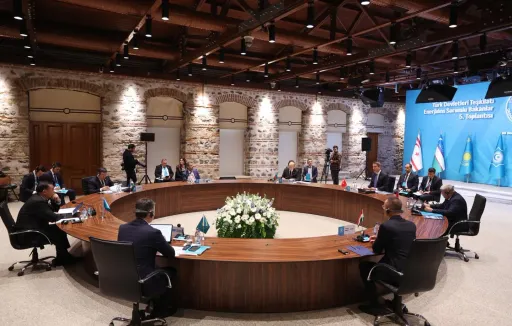By Mamadou Dian Barry
As it fights terrorism, West Africa has been dealt a double whammy in the resurgence of an old nemesis.
The sub-region has been rocked by a series of military coups d'état, causing panic at the highest levels of government, and jeopardising the plans of traditional partners.
Mali, Guinea, Burkina Faso and, more recently, Niger are all now led by military leaders. This isn't a new phenomenon. Coups d'état almost seem an abhorrent feature of governance in these four West African countries.
With 10 attempted takeovers against their names, Burkina Faso, Ghana and Sierra Leone top the list in West Africa. They are followed by Guinea-Bissau, which has experienced nine coups. Then come Mali, Niger, Benin and Nigeria with eight putsches each.
In the sub-region, Senegal is the exception that proves the rule, according to data from the University Central of Florida, and the University of Kentucky in the US.
Togo, Guinea, Liberia, Côte d'Ivoire, and The Gambia have all experienced at least one military coup since gaining independence.
The common thread now running through French-speaking countries is their colonial history.
France, the former colonial ruler of all the countries that have experienced the recent coups, has directly or indirectly played a role in the running of their governments long after independence, in a bid to maintain its hold and interests in what is known as its pré carré (one’s own little corner).
In the past, France seemed to have no hesitation in supporting the military when they overthrew regimes that were too nationalist for its taste.
This was exactly the case in Togo. In 1963, three years after coming to government, Sylvanus Olympio was overthrown by a group of soldiers led by Eyadema. He was later killed in suspicious circumstances.
According to Bidossessi Katakenon, president of the association Planète des jeunes Panafricanistes Bénin (PjP), "Olympio was eliminated to protect France's interests in Togo. After his assassination, a pro-French President took power and put an end to his sovereigntist plans."
The architect of Mali's independence, Modibo Keïta, is another. The former French schoolteacher and parliamentarian, who became President of Mali in 1960, was overthrown eight years later by a group of soldiers led by Lt Moussa Traoré, who would himself go on to suffer the same fate.
With a few exceptions (Thomas Sanakara and Mathieu Kerekou), the 1990s saw regime changes almost everywhere in French-speaking West Africa.
Pan-Africanists were ousted by coups d'état that brought military officers to power. From Eyadema to Blaise Compaoré, via Ibrahim Baré Maïnassara of Niger, all have had the red carpet rolled out for them at France's presidential Elysée Palace.
Some of the new leaders were, in turn, ousted years later. This was the case with Mali's Traoré and Niger's Maïnassara, with the latter being subsequently assassinated.
Others such as Eyadema swapped their fatigues for civilian clothes, continuing to rule with a carrot-and-stick policy till their deaths in office.
New nationalist push
Since 2020, ECOWAS has had to deal with putsches in four countries, each with officers from the Praetorian Guard overthrowing leaders considered by Paris to be privileged partners.
Apart from the timing and frequency, these putsches occurred in countries that were, on the face of it, democratically stable.
Prof Pascal Touoyem, who teaches at a number of universities, notes a new nationalist upsurge driven not by politicians (Olympio, Sékou Touré, Modibo Keïta, etc.), but by young, outspoken military officers reminiscent of Thomas Sanakara. For him, a new nationalist wind is blowing through the military barracks.
"We are witnessing the emergence, and even the rise to power, of sovereigntist armies that reflect the deep aspirations of the people. This is a democratisation that is taking place, but from below and for the silent majority," the Cameroonian academic tells TRT Afrika.
Bloodless coups
Whether in Mali, Guinea or Burkina Faso, the military has stood up to pressure from the sub-regional apparatus alongside sanctions from the international community.
Assimi Goïta, Mamady Doumbouya and Ibrahim Traoré, whose countries face an unprecedented regime of sanctions, have adopted a position of defiance towards ECOWAS and the West, just like Abdourahmane Tchiani, who defied the ultimatum of the sub-regional bloc which is supported by France in particular.
They also owe the success of their putsch to the support of a disillusioned and disgruntled civilian population galvanised by pan-African movements against "neo-colonialism".
"They are young people perfectly trained at Western schools and in Russia, with the same intellectual capacity as their Western colleagues. That's why, unlike their elders, their coups d'état succeed without bloodshed. It's intelligence at work here," says Prof Touoyem.
In addition to the courses and experience acquired in the West, these young officers are deeply rooted in African values, according to the analyst. "Apart from their professional training, there is the endogenous school and the traditional school. So, these young officers embody two schools in one," he says.
Vigilance
At this stage, the fight for liberation is not definitively won. It is true that France, the former colonial power, is being shaken and tossed about, but it is on its guard.
It still has a hold on its former empire, where it maintains several bases and troops such as in Senegal, Côte d'Ivoire, Niger, Gabon and Chad.
In Mali, Assimi Goïta and his men didn't hesitate to take over the reins of the country when they felt that the transition led by a former high-ranking officer, Bah Ndao, was changing course, particularly after meetings with the current French president, Emmanuel Macron, who was quick to denounce "a coup within a coup".
Prof Touoyem believes that, to avoid facing a popular revolt, France must anticipate its departure from Africa before chaos sets in, close its bases and repatriate its troops, seen as the symbol of colonisation. He believes a ''new Africa'' is emerging.
























